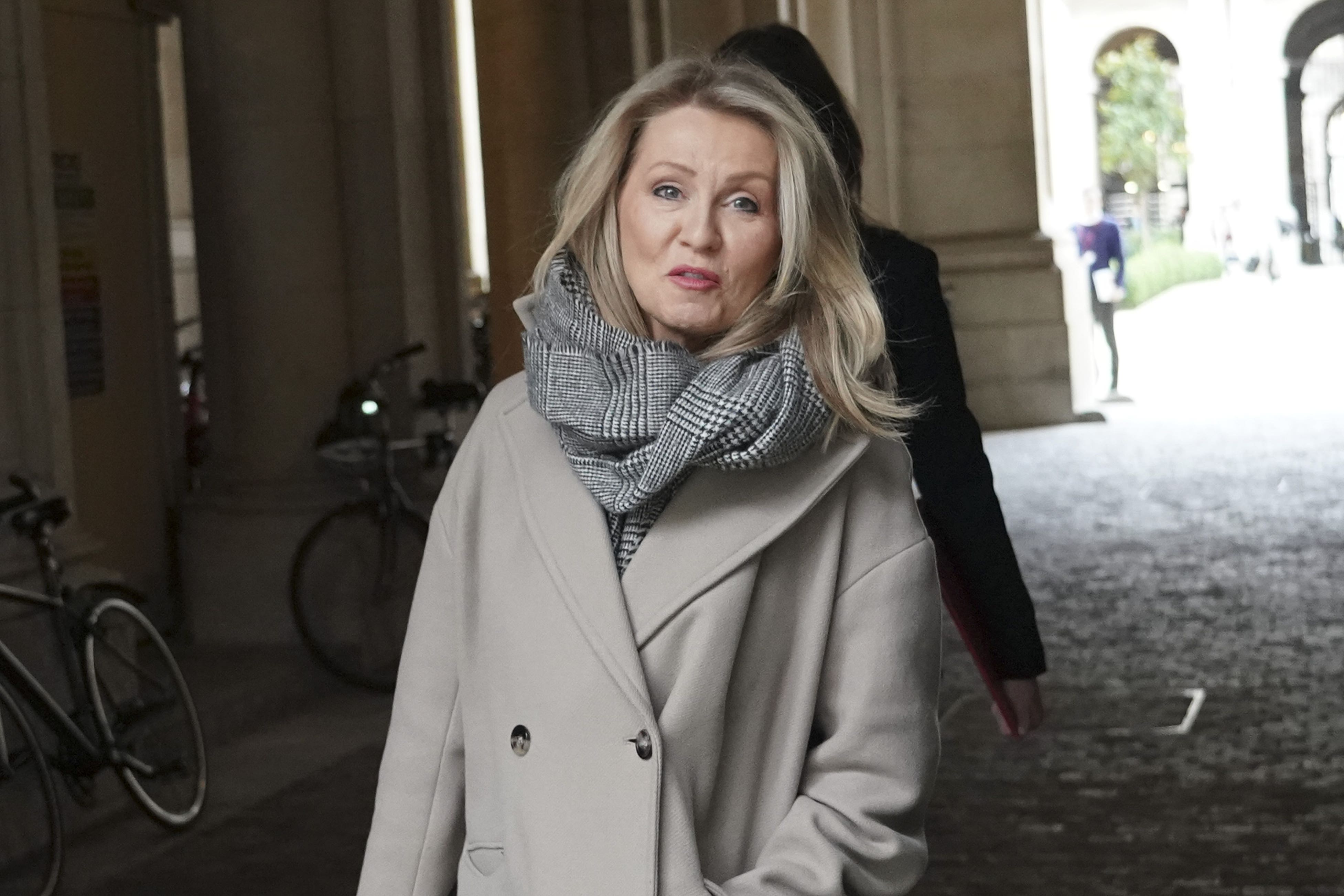Rainbow warrior: what’s behind Esther McVey’s attack on civil service lanyards?
The Tory minister for common sense has opened another front in the culture wars. Mary Dejevsky takes a look


Esther McVey, informally known as the minister for common sense, has not been especially visible since her appointment to Rishi Sunak’s government last November. Now, though, she has put her head above the parapet in a big way by calling for an end to the wearing of different coloured lanyards in the civil service and reiterating the duty of civil servants to be politically and ideologically neutral at work.
Is there really a minister for common sense?
It’s a purely informal title, but it has caught on. Officially, McVey is a minister without portfolio at the Cabinet Office. But it was made known when she was appointed, that she would have a roving brief to cast what might be called the cold light of sanity on to government ways of working and to nip potential problems in the bud.
In other words, she was being asked to see the functioning of government as members of the public might see it – and perhaps help save it from itself. Given the public’s dim view of government and politicians generally, it is perhaps surprising that the minister for common sense has not made more of a splash than she has to date.
Who is Esther McVey?
Born in Liverpool, in 1967, McVey had a successful career in the media, as a presenter on GMTV, before becoming an MP. She first entered parliament as Conservative MP for Wirral West in 2010, but lost her seat in 2015. She returned to the Commons in 2017, when she was elected to George Osborne’s old seat of Tatton in Cheshire.
As an effective communicator and Brexiteer, she was a big asset to post-Brexit governments and has held a wide variety of government jobs, including employment minister, secretary for work and pensions and minister for housing and Planning.
She resigned from Theresa May’s government over her Brexit deal and in the general exodus from Boris Johnson’s government. Some saw her return to government, and her designation, as a move to placate right-wingers after the resignation of Suella Braverman as home secretary, another straight-talking woman and Brexiteer.
Does she have a case?
The headline from her speech to the Centre for Policy Studies was about “rainbow” lanyards, signifying support for LGBT+ rights, and other coloured lanyards used by some civil servants to hold their name badges. But she was trying to make a much wider point about the proliferation of informal groups in the civil service and the public sector in general, whose members essentially advertise their personal affiliations or sympathies while at work.
She objected on several counts: that the civil service in particular is supposed to be neutral in every respect, that the growth of such separate groups or networks publicising their particular identity could be divisive, and that civil servants should not be employed to foster or support such groups. In other words, that what was happening was a confusion between personal and professional, and the two should be kept apart.
Is this a question only for the civil service?
There is a particular issue for the civil service, because of its expectations about its professional ethos, and because of accusations that there are individuals and groups, including in the Home Office, who have used their positions to try to thwart government policies they oppose.
Such accusations are not new or peculiar to this government – the civil service was a target of Labour ministers, too, who accused it of obstructing their policies. But they have intensified, both because of the increase in what might be called identity groups and because of what is known as the “wokeism” that has accompanied it.
High-profile critics of the civil service, such as Johnson’s former adviser, Dominic Cummings, have also given such complaints more prominence than they might otherwise have had. There are issues across the world of work, but especially in the public sector, stemming from the rise of diversity policies and the creation of jobs to promote or monitor them.
The origins of such policies were laudable, but criticism has grown with some saying that the attention to diversity and the cost of employing dedicated staff diverts services, such as the NHS, from their prime purpose. There also risks of creating or exacerbating divisions among staff, such as happened at the National Trust over a policy of rainbow badges.
What else should a minister for common sense be looking into?
The opportunities should be endless. One current question might be about what proportion of government and civil service staff should be in the office for what proportion of time, following the pandemic period of working from home.
One of my hobbyhorses would be to look at the effectiveness or not of 12-hour shifts (three- or four-day weeks) in the NHS. Another would be to consider reintroducing paper car tax discs, as without an actual disc, it is all too easy to forget to renew them. More suggestions welcome!





Join our commenting forum
Join thought-provoking conversations, follow other Independent readers and see their replies
Comments